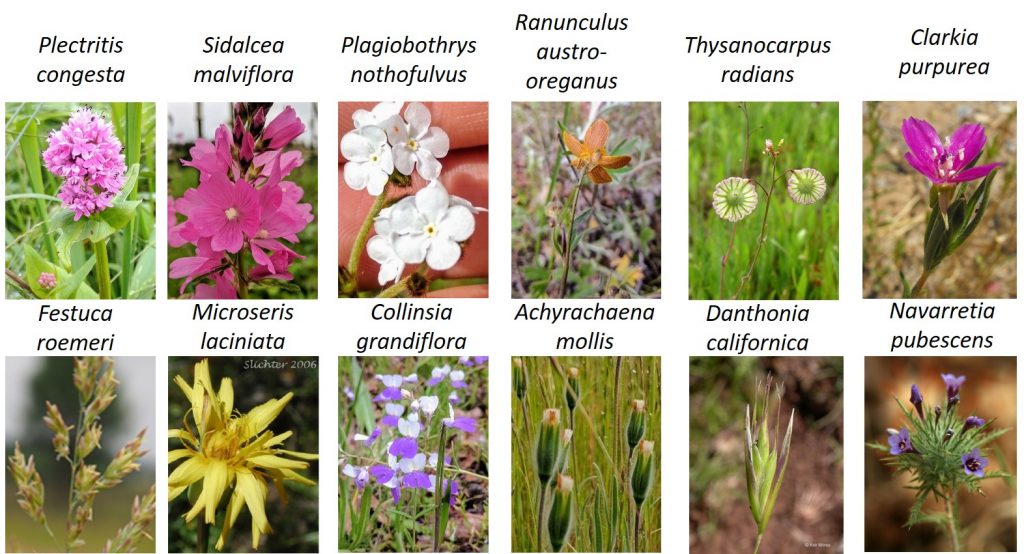The Environmental Leadership team collected phenological data for 12 native grass and forb species native to different latitudinal ranges (Table 1). To determine changes in species range and rate of survival outside of native zones, all species were planted at all three sites (Image 1).
Table 1 includes all species studied throughout the project. During 2016-2018, student teams studied the effects of climate manipulation on 12-15 species. The 2018 focal species are indicated with an asterisk.
Image 1. Map of 3 sites, including plot layout (Red and yellow represent warming plots; Blue and purple are ambient). Adapted from Paul Reed’s presentation (2018 Cascadia Prairie-Oak Partnership Conference, Eugene, Oregon).
Table 1: Table of 15 focal species
| Scientific Name | Common Name | Form | Range |
| Plectritis congesta* | Shortspur seablush | Forb | Widespread |
| Eriophyllum lanatum | Oregon sunshine | Forb | Widespread |
| Danthonia californica* | California oatgrass | Grass | Widespread |
| Clarkia purpurea* | Four spot | Forb | 50º North |
| Collinsia grandiflora* | Large-flowered collinsia | Forb | 50º North |
| Microseris laciniata* | Cutleaf silverpuffs | Forb | 50º North |
| Festuca roemeri* | Roemer’s fescue | Grass | 50º North |
| Plagiobothrys nothofulvus* | Rusty Popcorn flower | Forb | 46º North |
| Aristida oligantha | Prairie threeawn | Grass | 46º North |
| Achnatherum lemmonii | Lemmon’s needlegrass | Grass | 46º North |
| Sidalcea malviflora* | Rosy checker-mallow | Forb | 46º North |
| Ranunculus austro-oreganus* | Southern Oregon buttercup | Forb | 43º North |
| Thysanocarpus radians* | Fringe pod | Forb | 43º North |
| Achyrachaena mollis* | Blow wives | Forb | 43º North |
| Navarretia pubescens* | Downy pincushion plant | Forb | 43º North |
*2017-2018 Climate and Phenology focal species

